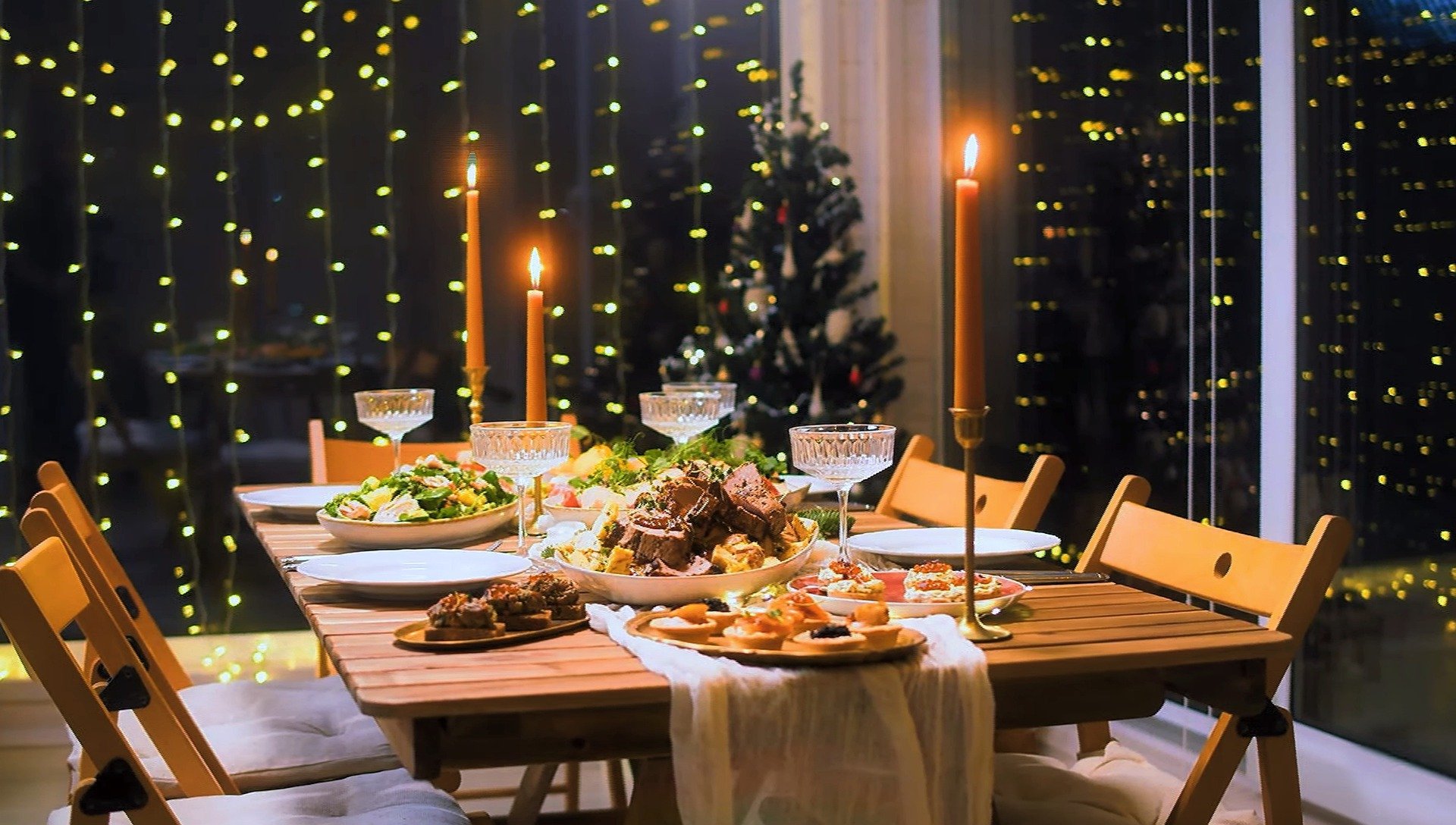
It is almost the end of December and Christmas is just around the corner. The holiday season is full of family gatherings with lots of food and drinks. How does this impact your health? In this blog I will discuss the effects of the “holiday diet” and the effect of visiting your in-laws during Christmas on your gut health. Additionally, I will give tips on how to celebrate a gut-friendly Christmas.
Unhealthy food can harm your gut health
Our diet affects the gut microbiome: the microbes that live in our intestines. These microbes grow on the food we supply to them through our diet. What is the effect of eating big amounts of (unhealthy) food in a short period of time, like we do during our yearly Christmas feasts? Contrary to what you may think, your weight is not greatly affected by a short period of “festive diet”. Researchers estimated the weight gain to be about 0.37 kilograms [1]. The effect on your gut microbiome may however be more severe, although we mostly know this from research with animals. Such studies have shown that when alternating a generally healthy diet with a few days of eating a lot of unhealthy food (some call these “cheat meals”) harmful effects are seen on the gut microbiota, which are similar to when you would eat unhealthy food all the time [2]. So, the holidays may cause limited weight gain, but gut health is still affected by cheat days. This shows that Christmas feasts can harm your gut health.
The effect of Christmas dinner with your in-laws
However, not just what we eat influences our health, who we celebrate Christmas with also has an effect. Different responses in the gut microbiota were seen between people spending Christmas with their own families and people spending it with their in-laws [3]. After spending time with their in-laws, the overall diversity of the microbiome increased. This is possibly because different families consume different types of dishes during Christmas. Interestingly, when zooming in on the effects on specific bacteria, dinner with the in-laws resulted in a decrease in a genera of bacteria called Ruminococcus. Having less of these bacteria is associated with psychological stress and depression. This suggests that stress associated with visiting in-laws during Christmas alters the gut microbiome.
Tips for a gut-friendly Christmas
Does that mean that we have to skip our Christmas dinners and avoid our in-laws during this year’s Christmas? Fortunately not! Here are some tips to celebrate Christmas in a way that keeps you and your gut happy and healthy:
- Keep moving. Staying active during the Christmas days keeps your digestive movements regular and reduces stress. Go for example on a nice walk after dessert.
- Stay hydrated. Not only do we eat more during Christmas, the bottles of beer and wine also appear on the table. However, this is not the kind of hydration we are talking about. Try to drink some herbal tea or lots of water to keep your gut healthy.
- Add fermented foods to your Christmas dinner, like kombucha, miso or yoghurt. These kinds of foods help digestion and support your immune system throughout the holidays. Carrots and potatoes are also known to benefit gut bacteria, which are easy to incorporate in a Christmas dinner.
Hopefully these tips will help you to celebrate a gut-friendly Christmas. Enjoying your meal should be a priority, but it would not hurt to take care of your gut as well. Most important, do not forget to enjoy all the Christmas fun during December. Changes in the gut microbiome can be temporary but memories stay forever!
Happy holidays!
References
[1] J. A. Yanovski, S. Z. Yanovski, K. N. Sovik, T. T. Nguyen, P. M. O’Neil, and N. G. Sebring, “A prospective study of holiday weight gain,” (in eng), N. Engl. J. Med., vol. 342, no. 12, pp. 861-7, Mar 23 2000, doi: 10.1056/nejm200003233421206.
[2] N. O. Kaakoush et al., “Alternating or continuous exposure to cafeteria diet leads to similar shifts in gut microbiota compared to chow diet,” (in eng), Mol. Nutr. Food Res., vol. 61, no. 1, Jan 2017, doi: 10.1002/mnfr.201500815.
[3] N. C. de Clercq et al., “The effect of having Christmas dinner with in-laws on gut microbiota composition,” Human Microbiome Journal, vol. 13, p. 100058, 2019/08/01/ 2019, doi: https://doi.org/10.1016/j.humic.2019.100058.
